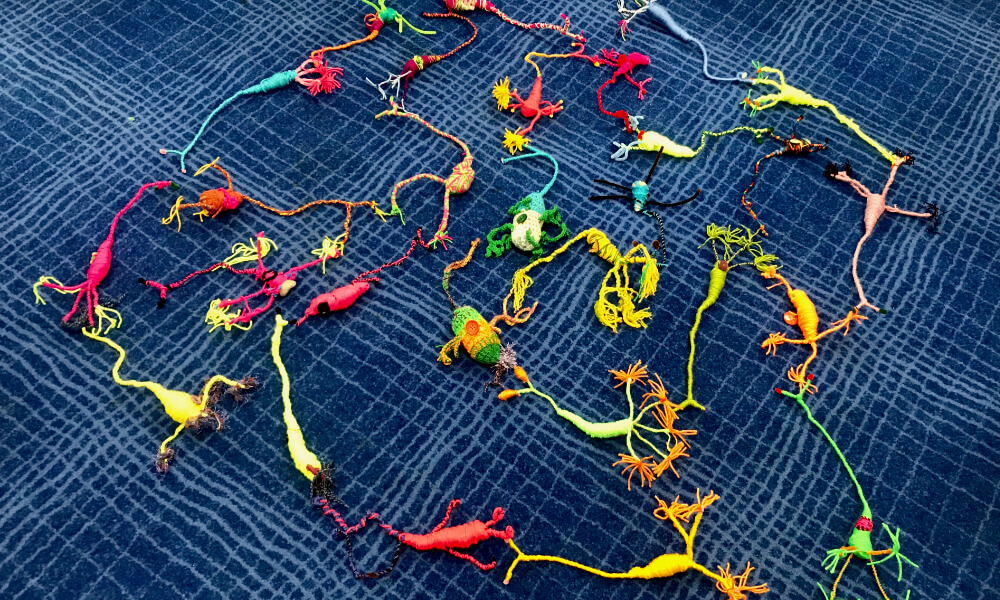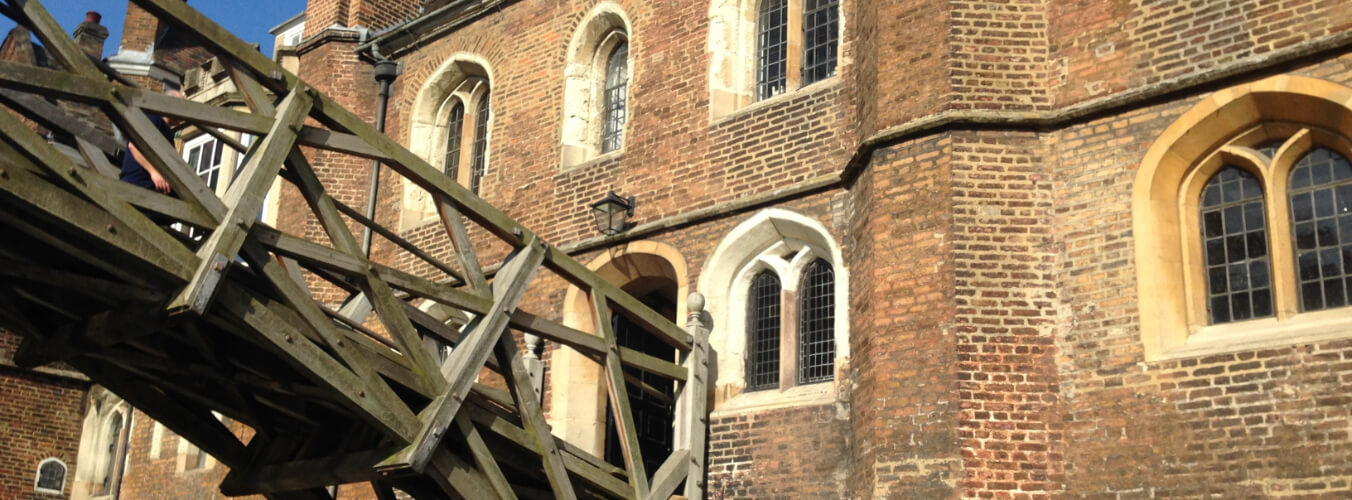- Welcome
- Testimonials
- Course Aims & Learning Outcomes
- MPhil Overview
- MPhil Programme Structure
- MPhil Coursework and Evaluation
- Sample Research Training Modules
- Sample Projects
- Practical advice
- Application
- Contact us

Sample Projects
Points to note:
- You can view the profiles of Cambridge Neuroscientists here.
- The titles below provide a starting point for your discussion with your potential supervisor and the project can potentially be modified in agreement with your supervisor (e.g. add a collaborator etc) – these are sample projects from previous years and may not be available currently. Projects on offer for your cohort will be made available in advance of your start date.
- You will have the opportunity to contact potential supervisors to discuss your project after your arrival in Cambridge. It is always advisable to meet your supervisor prior to deciding on your project.
- The official start date for your project is January but it may be possible to start in Michaelmas term (November/December) with the agreement of the Course Director and your supervisor.
- Locations of different laboratories – The different locations in Cambridge are very accessible by bike, walking and bus.
| Sample Project Titles | Supervisor details | Laboratory location |
| Transdiagnostic genetic risk, brain development and childhood mental health | Dr Kate Baker (PI) in collaboration with Dr Duncan Astle and Dr Joni Holmes | MRC Cognition and Brain Sciences Unit, Chaucer Road |
| Neuropsychological Rehabilitation – online and interactive? | Dr Andrew Bateman | Douglas House, Trumpington or NIHR BrainMIC office at CUHFT or MRC-CBU |
| What makes gaps in visual perception perceived versus filled-in? | Dr Paul Bays | Craik-Marshall Building, Downing Site |
| Role of hypothalamic extracellular matrix plasticity in metabolic sensing and energy balance | Dr Clémence Blouet | Institute of Metabolic Science, Cambridge Biomedical Campus |
| Neuron-specific methylomic analysis in Lewy Body Dementia | Dr Leonidas Chouliaras | Department of Psychiatry, Level E4 Cambridge Biomedical Campus |
| Probing striatal GABA using MR spectroscopy: relevance to addiction | Professor Jeff Dalley | Department of Psychology, Downing site |
| Unsupervised deep learning approaches to understanding development of visual receptive fields | Professor Stephen Eglen | Maths department (Wilberforce Road), although location flexible. |
| Hippocampal burst activity and induction of LTP | Dr Tanja Fuchsberger; Professor Ole Paulsen |
Physiology Development & Neuroscience, Physiological Laboratory, Downing site |
| Intergenerational mental health difficulties – an epidemiological study using national survey data | Professor Tamsin Ford Heather O-Mahen (Exeter University) |
Department of Psychiatry – Cambridge Biomedical Campus |
| Validation of the teacher pupil relationships questionnaire | Professor Tamsin Ford | Department of Psychiatry – Cambridge Biomedical Campus |
| Neural mechanisms underlying social influences on human food choice | Dr Fabian Grabenhorst | Anatomy Building, Physiology, Development and Neuroscience, Downing site |
| Identifying markers of brain inflammation in a mouse model of obesity. | Dr Ed Harding Dr Florian Merkle (PI) |
WT-MRC Institute of Metabolic Science, Level 5, Cambridge Biomedical Campus |
| Visualizing spontaneous neural synchronization events with GCaMP | Professor Allan Herbison | Physiology Development & Neuroscience, Downing Site |
| Connectomics and social behaviour: Drosophila sex pheromone circuits | PI: Dr Gregory Jefferis Co-supervisor: Dr Dana Galili |
Department of Zoology (New Museums site); MRC Laboratory of Molecular Biology, Cambridge Biomedical Campus |
| Connectomic variability in Drosophila olfactory circuits | PI: Dr Gregory Jefferis Co-supervisor: Marta Costa |
Department of Zoology (New Museums site) |
| Mental health and macroscopic brain organization in childhood | Dr Jonathan Jones PI: Dr Duncan Astle |
MRC Cognition and Brain Sciences Unit, Chaucer Road |
| Myelin plasticity – mapping myelination of neuronal circuits | Dr Ragnhildur Thora Karadottir | Jeffrey Cheah Biomedical Centre University of Cambridge Biomedical Campus |
| Understanding the relationship between ability to discriminate speech-like sounds and the relationship to speech understanding for cochlear implant users. | Dr Wiebke Lamping PI: Dr Deborah Vickers |
Herchel Smith Building, Cambridge Biomedical Campus |
| Critical periods of network development | Dr Matthias Landgraf | Department of Zoology, B12 & 24 New Museums site |
| Functional neuroimaging translation using generative adversarial networks (GANs) | Professor Pietro Lio Mr Alex Campbell |
William Gates Building, Department of Computer Science & Technology, West Cambridge Site |
| The emergence of complexity in the human brain across scales | Mr Andrea Luppi Dr Emmanuel A. Stamatakis (PI) |
University Division of Anaesthesia, Cambridge Biomedical Campus |
| Calcium regulation of sodium current in murine skeletal muscle | Dr H R Matthews Professor C L H Huang |
Physiology Building, Downing Site |
| Generative models of cortical network development at the cellular scale | Dr Susanna Mierau; Professor Stephen Eglen |
Physiology Building, H10, Downing Site |
| Synaptic and Network Dysfunction in Genetic Models of Autism | Dr Susanna Mierau Professor Ole Paulsen |
Physiology Building, H10, Downing Site |
| A new animal test of the effect of motivational salience on episodic-like memory | Dr Amy Milton Dr Deborah Talmi |
Department of Psychology, Downing Site |
| Acceptability of the use of artificial intelligence tools for the early identification of mental health problems | Dr Anna Moore | Douglas House, Trumpington, Department of Psychiatry |
| Genomics of mental disorder, brain structure and function | Dr Graham Murray | Douglas House, Trumpington, Department of Psychiatry |
| Metabolic ultra-high field (7 Tesla) magnetic resonance imaging | Dr Chris Rodgers | WBIC Cambridge Biomedical Campus |
| The role of alternate splicing in determining susceptibility to multiple sclerosis | Professor Stephen Sawcer | Clifford Allbutt Building, Cambridge Biomedical Campus |
| Whole genome sequencing in multiple sclerosis | Professor Stephen Sawcer | Clifford Allbutt Building, Cambridge Biomedical Campus |
| Functional & Structural Networks in Small Vessel Disease | Dr Daniel Tozer PI: Professor Hugh Markus |
Stroke Research Group, R3, Cambridge Biomedical Campus |
| Neural stem cell – glia interactions in mitochondrial disease | Dr Jelle van den Ameele | Department of Clinical Neurosciences and MRC Mitochondrial Biology Unit Cambridge Biomedical Campus |
| How are bilateral cochlear implant users affected by mismatched information presented to the different ears? | Dr Ben Williges PI: Dr Deborah Vickers |
Herchel Smith Building, Cambridge Biomedical Campus |
| Do the differences in depth of insertion of electrode arrays affect the speech and language outcomes for children with bilateral cochlear implants? | Dr Ben Williges Co-supervisor Dr Deborah Vickers, Prof Manohar Bance |
Herchel Smith Building, Cambridge Biomedical Campus |
| Investigating prediction mechanisms in the human brain | Dr Noham Wolpe Professor Paul Fletcher |
Douglas House, Trumpington, Department of Psychiatry |

